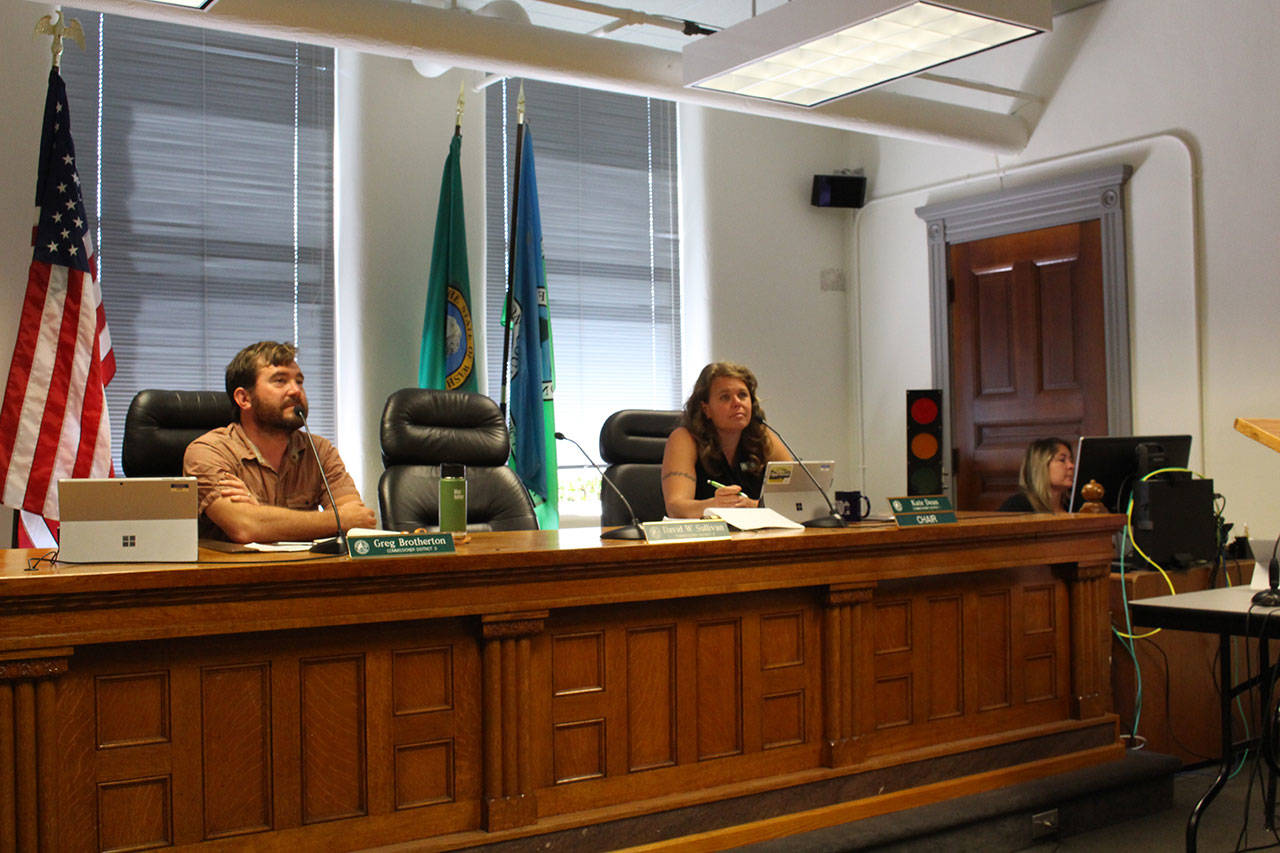PORT TOWNSEND — The Jefferson Board of County Commissioners is slated to vote next week on a resolution to amend the current development agreement for the Rocky Brook Hydroelectric Facility.
The vote is scheduled for Monday, Aug. 12, during the Board of County Commissioners’ (BOCC) business meeting. The board held a public hearing Monday and received no public comment on the topic.
The development agreement, a Shoreline Development Permit, was approved in 1986 by the BOCC and allowed for construction of a hydroelectric facility at the Rocky Brook tributary near the Dosewallips River in Brinnon, according to Jefferson County Associate Lead Planner David Johnson.
During proposed repairs and renovations in 2018 at Rocky Brook, the facility relocated the outfall to a different location on the tributary and upheld the original four conditions of the Shoreline Development Permit of 1986, but concerns were raised about one of the conditions, Johnson said.
The proposed resolution addresses one of the four main conditions of the original permit, which is that the “[t]he public shall be permitted free and unencumbered access to Rocky Brook Falls at all times except during active maintenance, repair or removal of the facility.”
Rocky Brook is owned by the Rocky Brook Hydroelectric LP company and an individual named Dell Keehn, who are collectively known as “Rocky Brook” in the orignal agreement.
The resolution is a result of Rocky Brook having mandated public access within the agreement, as it might disqualify the company from protection under the Recreational Immunity Act.
The Recreational Immunity Act says that landowners who open their land for outdoor recreational use, at no charge to the public, are free from liability from any injuries accidentally sustained while using the property, according to Johnson.
Rocky Brook’s location with the tributary, trail and the falls represents a risk of potential “negligence liability,” said Johnson.
The state Supreme Court determined in the Camicia v. Howard S. Wright Construction Company court decision that public land that can by protected by the Recreational Immunity Act must have the ability to close off the land from the public — regardless if it is for maintenance, repair or other construction needs of the premises.
The goal of the resolution would modify the ordinance from having a mandated public access to “voluntary” public access, which would allow the facility to fall under the Recreational Immunity Act and, therefore, absolve Rocky Brook from the potential liability of the injuries to visiting public, Johnson said.
The resolution has to be passed by the BOCC because it originally enacted the development agreement in 1986. However the resolution has no financial impact on the community, Johnson said.
________
Jefferson County reporter Zach Jablonski can be reached at 360-385-2335, ext. 5 or at zjablonski@peninsuladailynews.com.

